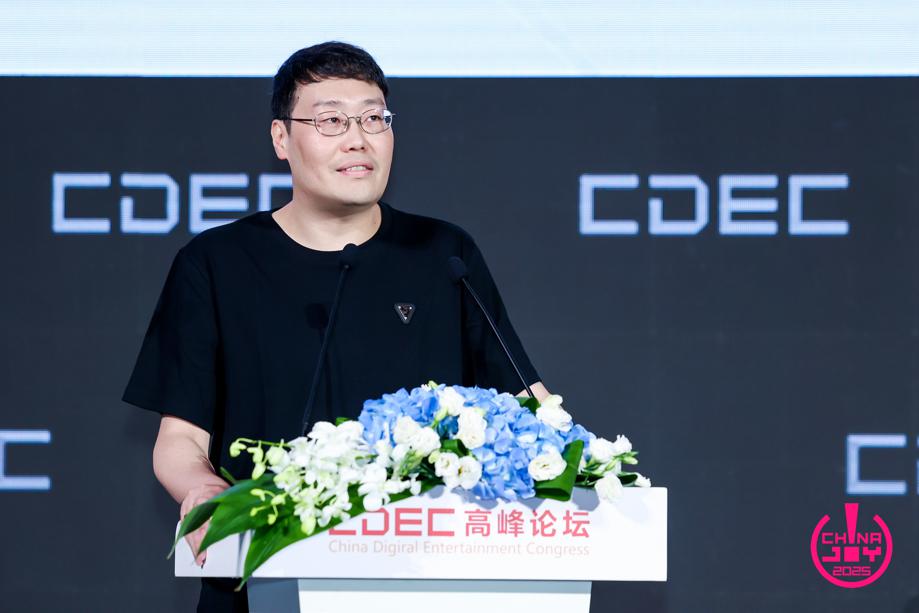Seasun Games seeks to unlock international opportunities


As a company with three decades worth of experience, Seasun Games has reached the prime time to make bold steps in overseas markets and reach more players with quality games, said Yao Zhe, vice-president of the Zhuhai-based game company in an exclusive interview with China Daily on Thursday.
The Mecha Break game, launched globally on July 2, is the latest example of these efforts. A multiplayer mecha combat game set in a futuristic sci-fi realm, Mecha Break registered 132,000 concurrent online players on the Steam platform in the peak time, taking first place both in new game ranking and popularity soon after its release.
Mecha Break is being demonstrated at this year's China Digital Entertainment Expo & Conference, better known as China Joy, which is running in Shanghai from Friday until Monday.
According to Yao, continued investment is vital for coming up with an internationally competitive game. Up to 60 patents integrated into Mecha Break have won national patent awards, covering image technology processing, character animation processing, data management, human-computer interaction, virtual reality and augmented reality.
To give an idea of focus, 70 percent of Seasun Games' 2,300 employees are dedicated to research and development. As well as setting up a studio in Irvine in the United States, the company has worked with universities in the area, including the University of Southern California and the University of California, Los Angeles. The academic background of many members of Seasun staff includes time spent at overseas universities, and these people now play important roles in the company's projects, Yao said.
Insights on consumer profiles in overseas markets have proven indispensable and have been beyond the company's expectations, Yao added, with about 73 percent of overseas users under the age of 26.
Japanese players exhibit a stronger-than-expected preference for competitive player-versus-player gameplay, while North American players show high purchasing intent for derivative merchandise such as model kits and collectible figures, he said.
According to the latest half-year China Game Industry Report, released on Thursday, income generated by independently developed Chinese games in overseas markets exceeded $9.5 billion in the first six months of 2025, up 11.07 percent from a year earlier. The US was the biggest overseas market for these games, taking up 31.96 percent of the market share, followed by Japan and South Korea.
As Yao understands it, Chinese games going abroad is about Chinese culture reaching a wider audience. The key to success lies in delivering the core of Chinese culture in internationally accepted expressions.
"The success of Chinese sci-fi IPs in overseas markets, such as the Three-Body Problem novel and the Wandering Earth movie, has shown that modern expression of Chinese culture can win applause from audiences from all over the world," he said.
According to a report released by the Chinese Science Fiction Research Center in March, total income from China's sci-fi industry was 109 billion yuan ($15 billion) in 2024, with the majority, 71.8 billion yuan ($9.96 billion), generated by sci-fi games.
The logic of Chinese games going abroad has changed, added Yao. It is no longer a roundabout way of seeking development. These games are winning the hearts of overseas users because of quality.
In this sense, the Chinese games industry will be more differentiated. The top industry players will focus on large projects, which will require at least 100 million yuan ($13.87 million) of investment each. The smaller ones will focus on a specific category to maximize strengths such as artistic style or storytelling, he said.
On top of that, Chinese games companies will not only focus on traditional games development in the future, but also integrate more methods and techniques used in films or other artforms. They will include more derivative content and come up with more real-world activities, with a view to large numbers of game users growing into a tight-knit community, he added.
Such approaches have been taken with Mecha Break. The game's first official animated short film has received more than 3.4 million views on the video platform Bilibili. To date, sales revenues from game figurines have exceeded 30 million yuan ($4.16 million).
Yao admitted the challenges facing Chinese games companies' seeking to expand overseas. The most pressing task at present is to address the lack of employees with expertise in culture, law and religion in target markets, as well as the ability to put in place a localized operation, he said.
But there is a bright side for Seasun Games, as it is based in the Guangdong-Hong Kong-Macao Greater Bay Area. Supported by local governments, the company is able to work with local universities to set up game design courses and nurture talents in a more tailor-made way, he said.




































